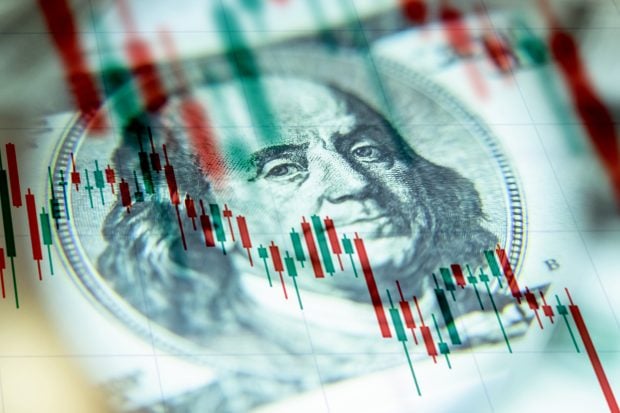 Source: AdobeStock.
Source: AdobeStock.
Jobs grew at a brisk pace in January, confounding those who were expecting a sign of a slowdown in the U.S. economy.
The U.S. Bureau of Labor Statistics reported there were 155.1 million seasonally adjusted jobs in January, an increase of 517,000, or 0.3%, from December and up 3.3% from a year earlier.
Recommended For You
The newest data also showed job gains last year were slightly stronger than originally estimated. It reflected BLS's annual benchmarking of data based on thorough counts from the Quarterly Census of Employment and Wages for March 2022.
After the strong jobs report for December released in early January, NAFCU Chief Economist Curt Long said he thought there was a good chance the nation would avoid a recession in 2023. After Friday's jobs report, Long said he "definitely feels better" about those chances.
"We have a really hot jobs market," Long said.
However, Long said he wants to see how inflation trended in January, and whether the housing market has begun to revive as mortgage rates have fallen recently.
The average 30-year fixed-rate mortgage was 6.09% on Feb. 2, according to Freddie Mac. While that's a far cry from the historic low of 2.65% in January 2021, the 6.09% rate was the lowest since last September and down from a high of 7% in November.
Moreover, the Mortgage Bankers Association forecast that they will fall gradually to 5.2% by year's end.
Long said more buyers are likely to enter the market, despite rates being two times higher than the historic low.
"They're over it," Long said. "They're not going to get a 3% mortgage rate. It's not going to happen."
 Curt Long
Curt Long Long also thinks car sales might improve, which would have a downside of putting upward pressure on prices, which in turn would raise the inflation rate.
But he has a couple of concerns. For one thing, will the health of the market increase inflation? For another, there's the wackiness of January's economic numbers.
Long said January is normally a month when jobs are shed after heavy hiring for the holiday season. That makes for large seasonal adjustments that tend to have big revisions in the following months as more data arrives.
"I'd like to see the February numbers before I come to any definite conclusion," he said.
Last fall, CUNA and the Mortgage Bankers Association forecast a mild recession would begin in the first half of 2023. CUNA cited the Fed's rapid escalations in the federal funds rate to bring inflation back down to its 2% goal.
Last month, CUNA said it was less certain about a recession, and has at least delayed its start to this year's second half.
"We still believe there will be a recession this year, but the probability has fallen slightly," CUNA's January forecast report said. "Recently, the U.S. job market has slowed without reversing, and inflation, although still well above the Fed's target rate of 2%, has slowed more than expected."
Last fall, CUNA had predicted no economic growth in 2023; now it forecasts a 0.5% gain in gross domestic product. Unemployment was expected to rise to 4.5% by December 2023; now it expects it to rise to 4.2%. Inflation was expected to be 4% this year; now it expects 3.5%.
On Wednesday, the Fed raised the federal funds rate by 25 basis points, as expected. Long and other economists said they think they are likely to raise it by another 25 basis points when their next meeting ends March 22.
"Receding inflation reduces pressure on the Fed to further substantially raise the Fed Funds rate, although we do not expect a course reversal until next year," CUNA's report said. "The relative strength of the labor market means the economy has so far been able to withstand the interest rate increases without going into reverse. In other words, the goal of a soft landing (the economy slowing enough to rein in inflation without going into recession) now appears more likely that it did three months ago, although we still doubt it will be achieved."
Long and CUNA acknowledged external factors might change the economy's course dramatically.
CUNA's report cited the threat of Congress failing to raise the debt ceiling.
"For now, we cautiously assume that after much fuss the federal debt ceiling will be raised this summer in time to avoid a default by the U.S. government," CUNA's report said. "However, it's quite possible that a stalemate worse than the last time Congress came close to not raising the ceiling in 2011 could seriously disrupt financial markets, international investor sentiment and consumer behavior. If this were to happen, had the economy been able to avoid a recession, it would almost certainly be forced into one. If a recession had already begun, it would be considerably worsened."
CUNA said it expects savings growth to rise slightly to 6% this year, as loan balance growth slows to 7% from its historic gains of nearly 20% last year. Returns on average assets will fall from an estimated 0.82% in 2022 to 0.60% this year as charge-offs rise, income from mortgage refinancing drops further and costs continue to rise.
"It will be difficult to lower operating expenses this year considering the need to increase compensation in response to the inflation of the past 18 months," the forecast said.
© Touchpoint Markets, All Rights Reserved. Request academic re-use from www.copyright.com. All other uses, submit a request to [email protected]. For more inforrmation visit Asset & Logo Licensing.







